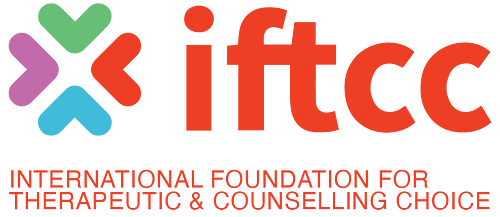Memberships
How We Build Our Community
Association to the IFTCC, via adherence to this document “IFTCC Practice and Ethical Guidelines (2023)” has reference to five possible categories listed below.
Membership Category
Membership #1
Senior Fellow
By invitation, we acknowledge first, IFTCC Senior Fellows who by merit and standing hold the highest level of IFTCC recognition. These are persons willing and able to hold this position and may serve as ad hoc advisors to the ETAC contributing to the development of the IFTCC Professional Register. Such individuals have experience in associating with a professional body in respect of their own membership and are familiar with good practise in how a professional person properly maintains professional association with any professional fraternity. The category would be for counselling and psychotherapeutic, clinical and medical practitioners, pastoral care workers or scholars with an interest and expertise in some aspect relating to our work. IFTCC Senior Fellows might no longer be actively engaged in practise.
Membership #2
Fellow
By invitation, IFTCC Fellows are senior members of the register, achieved through qualification and experience – distinguished from Senior Fellows by longevity expected of Senior Fellows. IFTCC Fellows typically currently practise in their field of expertise and actively engage in clinical or pastoral care work for the population group we serve. Typically, this category would be con-currently licensed practitioners, or active members of professional bodies anywhere else in the world, those offering pastoral care to former LGBT clients, or scholars with active publication records. Not all Fellows are registered on the IFTCC Professional Register.
Membership #3
Member
FTCC Members hold professional recognition in their field, and are typically seeking to develop expertise in the field. They seek to benefit from the collegiality found within the IFTCC and from training opportunities provided by the organisation. Membership maintenance requires ongoing evidence, in the form of a Professional Portfolio record, reflecting continuing professional development (CPD) undertaken, through IFTCC Learning. Where relevant, Professional Portfolios reflect hours of experience gained in the counselling, therapy practice or pastoral care context with which members are associated. Both fellows and members constitute the so-called “recognised provider” or IFTCC Professional Register to whom the organisation links those approaching the IFTCC for assistance. Not all IFTCC Members are registered on the Professional Register.
Membership #4
Associate/Trainee
Members not hold professional recognition in their field, and typically are seeking to develop expertise in the field and seek to benefit from the collegiality found within the IFTCC and the training opportunities provided by the organisation. Membership maintenance requires ongoing evidence in the form of a Professional Portfolio record reflecting continuing professional development (CPD) undertaken. Where relevant, Professional Portfolios reflect hours of experience gained in the counselling, therapy practice or pastoral care context with which associates are operating in. Both fellows and members would constitute the so-called “recognised provider” or IFTCC Professional Register to whom the organisation might link those approaching the IFTCC for assistance.
Membership #5
Friends/Supporter
IFTCC Friends/Supporters typically do not hold recognised professional qualifications in counselling, therapy or pastoral care but nevertheless reflect a high level of interest, facility and experience in serving the population group with which the IFTCC concerns itself. They might be self-taught or currently in training and have direct involvement as mentors, informal pastoral care providers or ministry leaders.
Membership #6
Organisational Associate
An IFTCC Organisational Associate is a formal association between like-minded independent organisations and the IFTCC, sharing values and practice principles, consistent with the IFTCC Practice and Ethical Guidelines (PEG) Document.
